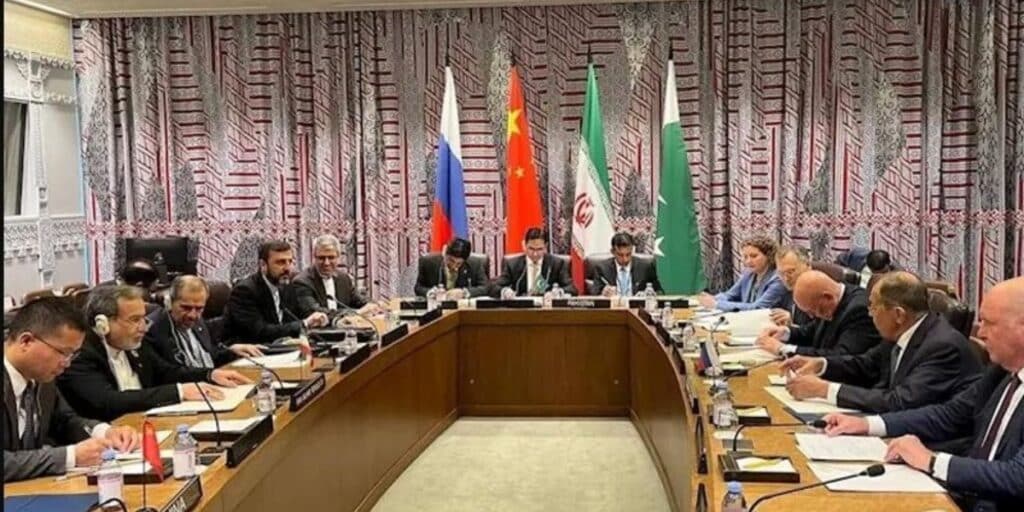NEW YORK: According to Iran Press, the foreign ministers of China, Iran, Pakistan, and Russia held their fourth quadrilateral meeting on Afghanistan in New York on the sidelines of the 80th United Nations General Assembly session, at the invitation of the Russian Federation.
New Balochistan news updates say that in a joint statement, the four countries reaffirmed their commitment to seeing Afghanistan as an independent, united, and stable state free from terrorism, conflict, and narcotics.
They expressed deep concern over the terrorist threats originating from Afghanistan and identified groups such as ISIS, Al-Qaeda, the Eastern Turkistan Islamic Movement (ETIM), the banned Tehrik-i-Taliban Pakistan (TTP), the outlawed Jaish al-Adl, and the proscribed Balochistan Liberation Army (BLA) as serious dangers to regional and global security.
The foreign ministers urged the Afghan authorities to take verifiable measures to eliminate all terrorist organizations, halt recruitment and financial support, and close training centers and related infrastructure.
Balochistan News Updates:
They also voiced support for regional initiatives to strengthen Afghanistan’s economy, emphasizing that sustained economic cooperation is vital to improving the difficult living conditions of the Afghan people.
Furthermore, the ministers called for adjustments to the 1988 sanctions regime to reflect current realities and cautioned against double standards and political motives, particularly regarding exemptions on travel restrictions for Taliban officials.
The four-nation consultations on Afghanistan reflect ongoing regional concern about security and stability since the Taliban regained power in August 2021.
After the withdrawal of U.S. and NATO forces, neighboring countries have repeatedly warned that Afghan soil must not be used by militant organizations to threaten the wider region.
Groups such as ISIS-K, Al-Qaeda, the Eastern Turkistan Islamic Movement, Tehrik-i-Taliban Pakistan, Jaish al-Adl, and the Balochistan Liberation Army have exploited porous borders and weak governance to recruit fighters, raise funds, and stage cross-border attacks.
China, Iran, Pakistan, and Russia all share long land borders or strong economic interests with Afghanistan, making stability there essential for their own security and development plans.
Previous trilateral and quadrilateral dialogues have focused on counterterrorism cooperation, humanitarian aid, and economic integration, including potential regional infrastructure projects.
However, international sanctions and the lack of an inclusive Afghan government have complicated direct engagement with the Taliban.
ALSO READ: Afghanistan still sheltering baloch separatist terrorists: CM Bugti
By urging verifiable counterterrorism action and calling for calibrated easing of U.N. sanctions, these countries aim to reduce militant threats while encouraging economic activity that could improve conditions for ordinary Afghans and curb the drivers of extremism.





